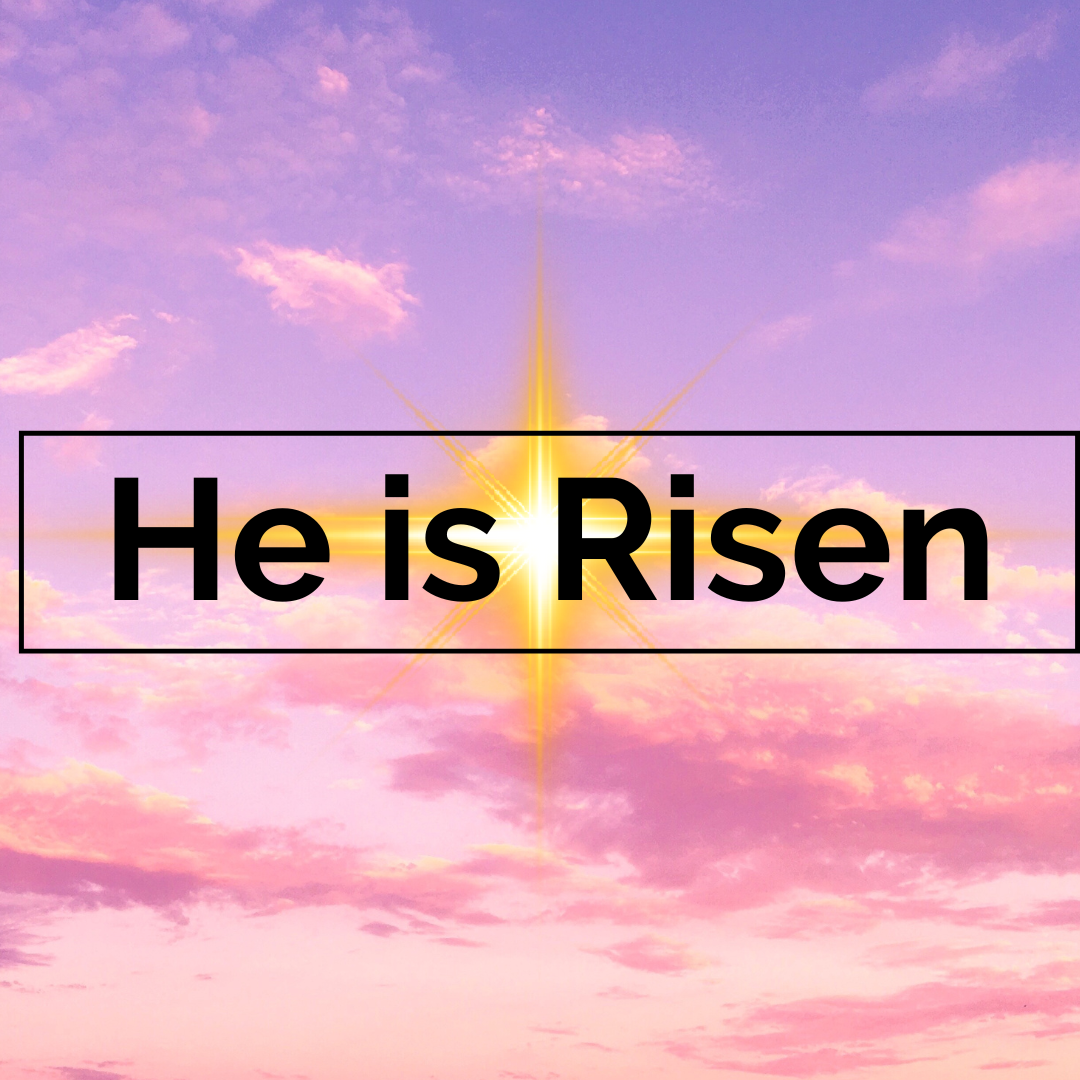Easter Changed Everything
Tammy Fleming, London, UK
Happy Easter, everyone.
As you read this, you may or may not be aware of the fact that in our faith community of the International Churches of Christ around the world, some of us, primarily in the “West,” celebrate Easter on April 9 this year, while some of us celebrate Orthodox Easter on April 16th.* It is encouraging to me that this difference in this one way in which we express our faith is not a point of contention for us, when it has been highly controversial in the history of Christianity – even a reason for excommunication and division among families, believers, and churches -- and the arguments continue to this day.
Easter changed everything – far more profoundly than just by giving us another high holy day on the calendar and providing an opportunity for special traditions to enjoy with loved ones. Whenever, wherever, however we may mark this event -- at this special season, or even daily, when we “resurrect” from our beds and may go to meet with God in some kind of personal way before we launch into our day – the miracles of that first Easter morning are riveting and worth celebrating! They are meant to stir us, thrill us, astonish us, amaze us, guide us, bless us, transform us and ultimately SAVE us… FREE us… HEAL us… GUARANTEEING us that what our hearts long for more than anything in all the world is ours.

What changed at Easter?
With Jesus’ birth, the Almighty Creator, God himself, came into the world as a human being. No other religion or spiritual belief in the world dares to suggest that the Creator God could be this intimate, self-sacrificing (in the best way!), loving pursuer of you and me. On the cross, the Son of God, being one with God and being in very nature God (John 17:21-22, John 1:1,2,14) did not stop short of the ultimate sacrifice: giving up life itself for us. In this action, I believe we are meant to understand that God’s love for you and me has no limit. It was not only the Son of God on the cross. At least in part, in some mysterious way that I do not fully grasp – God Himself was on the cross for us.
God proved, in the Easter miracles of Jesus’s death, burial and resurrection, that nothing will ever separate those in Christ from the love of God:
“I am convinced that neither death nor life, neither angels nor demons, neither the present not the future, nor any powers, neither height nor depth, nor anything else in all creation will be able to separate us from the love of God that is in Christ Jesus our Lord. Romans 8:38-39
But wait – didn’t God abandon Jesus on the cross? Didn’t Jesus cry out, “Eloi, Eloi, lama sabbachthani?” “My God, my God, why have you forsaken me?” (Matthew 27:46) Didn’t God turn his back and leave him alone, ignoring his cries at the hardest and most frightening moment of his whole life, because the Most High God could not be with Jesus at the moment when he took all the sins of the world on himself in order to pay the price for them?

What if there is something even deeper going on?
When Jesus cried out, “My God, why have you forsaken me?” He was quoting Psalm 22:1. The Psalms are outstanding in spiritual literature, one reason being that they display a wide range of human emotion.
What if, when he cried, “why have you forsaken me,” Jesus was expressing a feeling he had that seemed like reality to him (since you’re not rescuing me from this cross, Father, you have forsaken me)? How possible is it that God might have been there all the time, full of empathy, full of compassion, fully present, suffering in unison with his Son? Is there anything in the Scripture that would prevent that interpretation?
Let’s think about it. Jesus was “the exact representation” of God (Hebrews 1:3). If God is so holy that he cannot be in the presence of sin and therefore left Jesus alone on the cross, why do we see Jesus eating and drinking with tax collectors and sinners (Matthew 9:10-17, Mark 2:15-22, Luke 5:29-39)? Why do we see him touching lepers if they are unclean (Matthew 8:3)? Why do we see Satan coming into the presence of God in the story of Job?
I believe God’s word is supernatural (2 Timothy 3:16). It is true, reliable and does not contradict itself. If that is the case, let’s think about scriptures like Isaiah 43: 1-2:
But now, this is what the Lord says –
He who created you, O Jacob,
He who formed you, O Israel:
“Fear not, for I have redeemed you:
I have summoned you by name; you are mine.
When you pass through the waters, I will be with you,
And when you pass through the rivers, they will not sweep over you.”
If God says, “I will be with you” to sinful, unfaithful Israel at a time of great distress, why would he treat his sinless, perfect Son differently at the moment when he took on the sins of Israel?
Speaking of Jacob, that Old Testament Patriarch built an altar to God once, referring to God as the one “who answered me in the day of my distress and who has been with me wherever I have gone.” (Genesis 35:3) Why would God be with deceitful Jacob while he was living life as a sinful man and would not be with his perfect Son, at Jesus’ time of greatest need? Why would God “be with” Jacob’s sins but not with Jesus, at the moment that Jesus would take on Jacob’s sins on the cross?
If Psalm 34 describes God as being close to the brokenhearted (v. 18), how would he not remain close to his perfect, obedient Son as he was being mocked and shamed and rejected by those he had formed, created and loved (Colossians 1:16)?
The Bible didn’t have to give God titles like, “the Father of compassion and the God of all comfort, who comforts us in all our troubles” (2 Corinthians 1:3). I believe they are there because this is God’s unchanging nature, and we are meant to trust it.
So what difference does it make if I believe God turned his back and was separated from God for a time while Jesus was on the cross or if he remained present?
Recently I spent time with an older Christian woman in our church whose adult daughter had died tragically from cancer leaving two adopted children behind. Our older sister, the mother of the deceased, had prayed fervently and earnestly for months along with the whole church and everyone who knew this young mother. No one could believe it when she suddenly took a turn for the worse and died.
Our older sister was left with the feeling that God had abandoned her in her time of greatest need because all these fervent prayers went unanswered and her daughter died despite them. She was suffering emotionally and spiritually so deeply, trying to make sense out of her daughter’s death. Her tragic conclusion was that “I must not be good enough for God” or he would have heard my prayers and answered them. With that conclusion, she was full of resentment and understandably was pulling away from God – what’s the point of being a Christian if God doesn’t like me and doesn’t want to be with me and I don’t understand why or how to please him?
My heart just broke, listening to the pain in her heart. I couldn’t help but wonder if the belief that God turned his back on Jesus at his greatest moment of suffering might lead us to believe that God does the same thing to us? Despite all the Scriptures to the contrary, despite the fact that this precious sister of ours lives as a faithful baptized disciple, somehow her theology led her to believe that God turned His back on her in her greatest hour of need. Therefore, she must be displeasing and too sinful for God to hear her prayers – or else a loving God would surely have answered and saved and rescued.
What changed with Easter?
Romans 5:8
But God demonstrates his own love for us in this: while we were still sinners, Christ died for us.
1 John 4:10
This is love: not that we loved God, but that he loved us and sent his Son as an atoning sacrifice for our sins.
God’s love for us was tested and proven. Even death will not, cannot separate us from it!
Whatever you believe about the mechanics of atonement, or the date of Easter, we can all celebrate together wholeheartedly: Jesus is risen!
Amen. Come, Lord Jesus.
The grace of the Lord Jesus be with God’s people. Amen.
Revelation 22:20b-21

*If you’re interested in a thorough and very readable explanation as to how Christians have come to have different dates for Easter, you may want to read
https://www.pillarcatholic.com/p/christians-have-two-dates-for-easter (“The Pillar is a Catholic media project focused on smart, faithful, and serious journalism.” )


1 Comments
Apr 10, 2023, 6:53:56 PM
Rhea - Thank you Tammy I have more learnings and I want to really Know God in my life 🙏 and Jesus.. Thank you again.